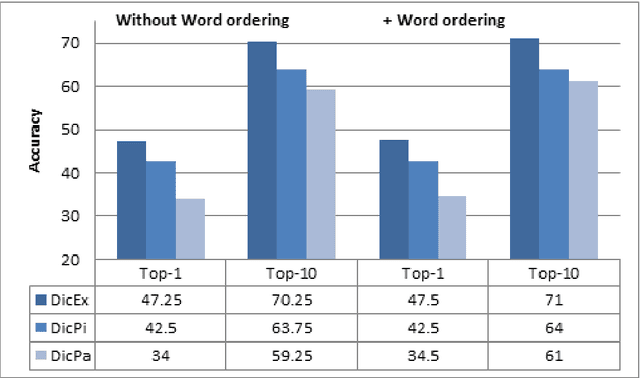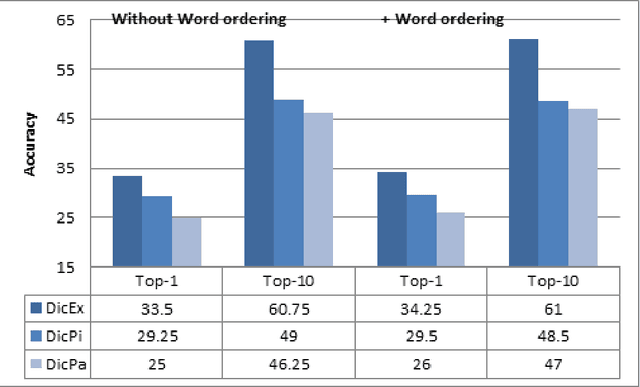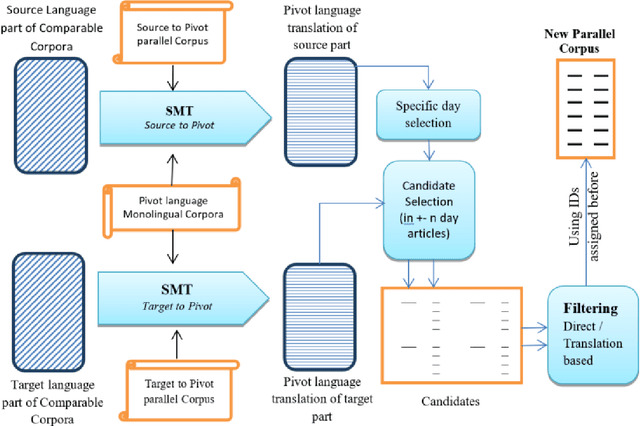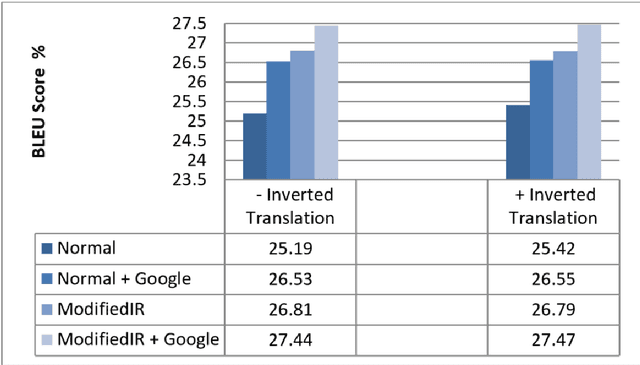M. H. Sadreddini
Extracting Bilingual Persian Italian Lexicon from Comparable Corpora Using Different Types of Seed Dictionaries
Jan 29, 2017



Abstract:Bilingual dictionaries are very important in various fields of natural language processing. In recent years, research on extracting new bilingual lexicons from non-parallel (comparable) corpora have been proposed. Almost all use a small existing dictionary or other resource to make an initial list called the "seed dictionary". In this paper we discuss the use of different types of dictionaries as the initial starting list for creating a bilingual Persian-Italian lexicon from a comparable corpus. Our experiments apply state-of-the-art techniques on three different seed dictionaries; an existing dictionary, a dictionary created with pivot-based schema, and a dictionary extracted from a small Persian-Italian parallel text. The interesting challenge of our approach is to find a way to combine different dictionaries together in order to produce a better and more accurate lexicon. In order to combine seed dictionaries, we propose two different combination models and examine the effect of our novel combination models on various comparable corpora that have differing degrees of comparability. We conclude with a proposal for a new weighting system to improve the extracted lexicon. The experimental results produced by our implementation show the efficiency of our proposed models.
Using English as Pivot to Extract Persian-Italian Parallel Sentences from Non-Parallel Corpora
Jan 29, 2017



Abstract:The effectiveness of a statistical machine translation system (SMT) is very dependent upon the amount of parallel corpus used in the training phase. For low-resource language pairs there are not enough parallel corpora to build an accurate SMT. In this paper, a novel approach is presented to extract bilingual Persian-Italian parallel sentences from a non-parallel (comparable) corpus. In this study, English is used as the pivot language to compute the matching scores between source and target sentences and candidate selection phase. Additionally, a new monolingual sentence similarity metric, Normalized Google Distance (NGD) is proposed to improve the matching process. Moreover, some extensions of the baseline system are applied to improve the quality of extracted sentences measured with BLEU. Experimental results show that using the new pivot based extraction can increase the quality of bilingual corpus significantly and consequently improves the performance of the Persian-Italian SMT system.
 Add to Chrome
Add to Chrome Add to Firefox
Add to Firefox Add to Edge
Add to Edge